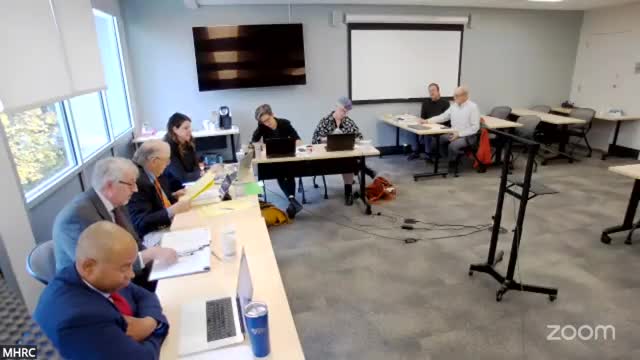Commission finds reasonable grounds in disability-accommodation dispute over home-based hair salon
Get AI-powered insights, summaries, and transcripts
Subscribe
Summary
The commission found reasonable grounds to believe Oak Hill Condominium Association discriminated against a resident with a disability who requested to operate a limited hair-cutting business from her unit as an accommodation for her severely disabled son.
The Maine Human Rights Commission found reasonable grounds to believe Oak Hill Condominium Association discriminated against a resident who asked to operate a small, appointment-only hair service from her condominium as a reasonable accommodation for her adult son, whom she cares for and who has documented cognitive and mental-health disabilities.
Board members told the commission they changed a community rule (Rule 19) to tighten restrictions on home-based businesses after reviewing the association’s declaration and receiving resident concerns. The board said its concerns were primarily about increased vehicular traffic, potential insurance-premium impacts and preserving the association's residential character in a community of 68 units that share private drives. The board president said the association would face administrative burdens and a complex process to amend its recorded declaration.
Complainant counsel said the resident sought permission before operating the business, sought to limit appointments and hours, and offered other limiting conditions (for example, directing customers to park in the resident’s driveway and avoiding walk-ins). Counsel said the board not only denied the requested accommodation but later assessed fines, commenced a foreclosure action over unpaid fines and referred the resident to a licensing board; counsel called those actions retaliatory and disproportionate. Counsel also said the board had allowed other home-based or home-linked activities and that the board’s post-hoc rule change targeted the complainant.
Investigator Angela Morse summarized the record and reported the complainant offered multiple limitations on the business; the investigator handled the administrative fact-finding and recommended a reasonable-grounds finding.
Commission action: Commissioners voted to find reasonable grounds to believe the association discriminated against the complainant on the basis of disability. The commission directed staff to open conciliation and notify the parties. The vote recorded in the hearing was unanimous in favor of a reasonable-grounds finding.
Why it matters: The commission's decision lets the complaint proceed to attempted conciliation and raises questions about how homeowner associations balance recorded covenants, rulemaking authority and statutory duties to provide reasonable accommodations for people with disabilities. The association said the declaration and the practical burdens of changing it make accommodation impracticable; complainant counsel argued state fair-housing law and disability accommodation obligations constrain such refusals and require a narrower administrative response than fines and foreclosure.
Next steps: The commission will send formal notices and offers to conciliate; unresolved matters could proceed to administrative hearing or civil enforcement remedies.
